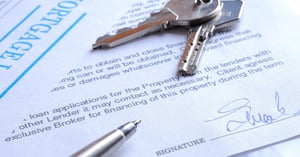The Definition of a First-Time Homebuyer is Broader Than You Think
Editor's note: The following information was updated in 2023 to include additional homebuyer resources.
3 min read
 Twin Cities Habitat for Humanity
:
10:48 AM on October 22, 2024
Twin Cities Habitat for Humanity
:
10:48 AM on October 22, 2024
![What to Do (And Not To Do!) Once You Get Pre-Approved for a Mortgage [VIDEO]](https://www.tchabitat.org/hubfs/2020%20Blog%20Images/January/Pre-Approved%20Mortgage%20-%20Featured.jpg)

If you’re a first-time homebuyer, getting pre-approved for a mortgage is the first step to becoming a homeowner. But just because you’re pre-approved doesn’t mean you’re locked into that status.
Our Open Market Lending Manager, Jen LaCroix, explains exactly what you should and shouldn’t do after you’ve been pre-approved for a home mortgage. “There are some things that you’d do on an everyday basis, but we’re going to ask that once you’ve got that pre-approval in hand, you hold off on,” says Jen.
Learn all about what to do—and what not to do—once you’re pre-approved for a home mortgage in our new YouTube video:
When you’re buying a house, you need to keep your finances stable, so there are many things you should avoid.
If, during your homebuying process, you get a job offer that’s bigger and better than the job you currently have, that’s great! However, should you choose to accept that job, tell your loan officer immediately, as that can impact your household income.
If you’re a typical W-2 employee getting paid regularly and you wish to become self-employed...wait to make that change until after you’ve purchased your house.
“We cannot take income that had once been W-2 and switch to self-employed income during the pre-approval process, or you’ll no longer be eligible for financing,” says Jen.
“We’re basing your pre-approval off of the credit report that’s in our hands,” says Jen. Loan officers continue to re-pull your credit score throughout the homebuying process to ensure everything is still within an acceptable range.
If your credit appears significantly different when it’s re-pulled, it could impact your loan eligibility. One such issue is called a “tradeline,” which is any open bank or credit card account that has a balance on it.
“If you’ve suddenly opened an account that wasn’t open before and there’s a minimum monthly payment on that account, we have to take that into consideration, and that could affect your pre-approval,” says Jen.
When you buy your first home, lenders ask for several months’ worth of bank statements. Lenders require those statements to prove you can pay for a house with your own money.
If you have multiple bank accounts (more than two), and you’re shifting money around a lot, you’ll need to explain the source of that money and prove that the money was yours to begin with. So, the more you shift money between accounts, the more you’ll need to explain and verify your actions
Find more tips on things to avoid between pre-approval and home closing.
Try to prepare yourself as much as possible with these tips on what you should be doing once you receive a pre-approval for a mortgage.
There can always be unforeseen complications that arise during your home search, and that’s okay! Just don’t hide them from your lender.
“If you tell your loan officer right away, nine times out of ten, your loan officer can likely find a solution,” says Jen, “But they cannot help you fix what they don’t know.” After all, they’re going to be watching your financial records anyway, so if it’s something significant, they’re going to notice!
If you want a smooth transition to closing, make sure you can verify everything you promised at the beginning of your pre-approval process. You’ll need your W-2s, bank statements, tax returns, and paycheck stubs. Make sure you have easy access to those documents. Remember, some of these documents may take extra time to access or pull, so “practice” tracking down these documents, and you’ll know how much time you’ll need to pull them together on your closing day.
Searching for your new home is very exciting, but it also requires work and preparation. There are many things to consider before touring homes.
In most markets, you’re paying for a house that costs several hundred thousand dollars. That’s a big purchase, and it requires a lot of checks and balances. So, be prepared for the unexpected, and know that you’ve got professionals on your side.
You’re only going to be a first-time homebuyer once, so have fun and enjoy the search! Keeping in mind what to do and what not to do when buying a home will help you enjoy the search a little more.
If you liked this video and want some more first-time homebuyer tips, subscribe to our YouTube channel!
Your gift unlocks bright futures! Donate now to create, preserve, and promote affordable homeownership in the Twin Cities.

Editor's note: The following information was updated in 2023 to include additional homebuyer resources.
![9 Things to Do Before Closing on a House [VIDEO]](https://www.tchabitat.org/hubfs/2023%20Blog%20Images/September%202023%20Blog%20Images/closing-on-home.jpg)
Closing on your first home can feel overwhelming, but it doesn't have to be. Whether you're working with a traditional lender or exploring programs...
![Understanding Credit and Your Credit Report [VIDEO]](https://www.tchabitat.org/hubfs/2020%20Blog%20Images/July/Credit%20Report%20-%20Featured%20Image.jpg)
We continue to process the pain and hope of our nation’s uprising for racial justice amid a global health crisis. You can see ourrecent statements...